Fine Arts Exhibitions
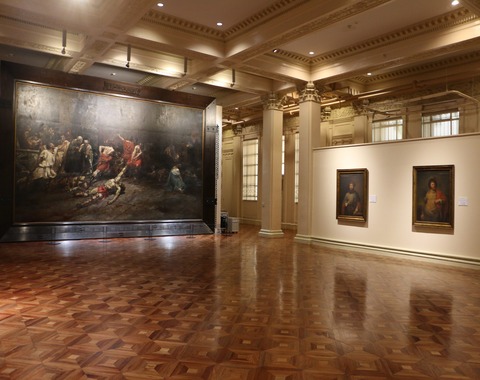
Juan Luna
Spolarium Hall
This hall houses one of the country’s most well-known paintings, the Spoliarium by Juan Luna y Novicio (1857-1899). Across it is El Asesinato del Gobernador Bustamante (The Assassination of Governor Bustamante), the most extensive work by another Filipino master painter, Felix Resurrección Hildago (1855-1913), Luna’s contemporary and friend.
READ MORE
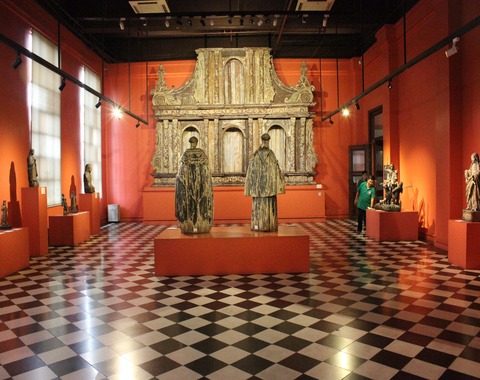
Gallery I
Luis I Ablaza Hall
Christian-themed art in the Philippines was prevalent in the 17th to the 19th centuries when parts of the country were under Spanish colonial rule. Many of these religious images were carved wooden santos (saints), and reliefs and paintings of the Virgin Mary and Jesus Christ made by unknown artists..
READ MORE
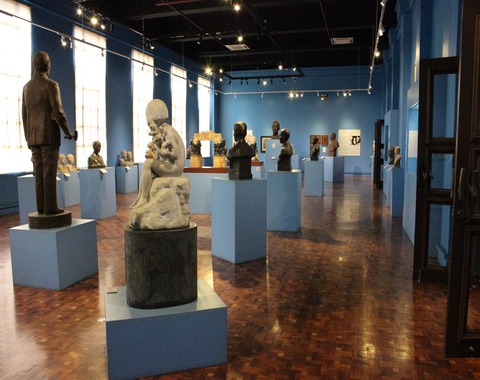
Gallery XII.
Security Bank Hall
National Artist Guillermo E. Tolentino (1890-1976) dominated Filipino sculpture in the 1920s to 1970s and the decades beyond, particularly in portraiture and human forms. He followed the classical style and mainly used plaster and metal to create his sculptures. Most of his work and memorabilia presented in this gallery are from his family and several private patrons and institutional partners of the National Museum of the Philippines.
READ MORE
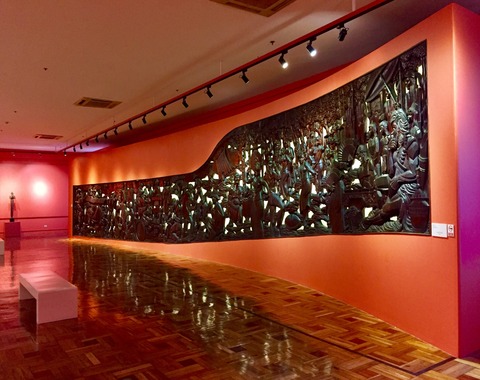
Carlos Francisco
Philippine General Hospital Hall
his hall is dedicated to The Progress of Medicine in the Philippines, a set of four large-scale paintings by National Artist Carlos “Botong” Francisco (1912-1969). These were especially commissioned for the entrance hall of the Philippine General Hospital in 1953. Declared a National Cultural Treasure in 2011, these important works are on loan to the National Museum by the University of the Philippines to secure their preservation. Also featured in this gallery is a large-scale wood relief by renowned sculptor Jose P. Alcantara (1911-2005) from the Philam Life Collection which previously adorned the Philam Life Theater.
READ MORE
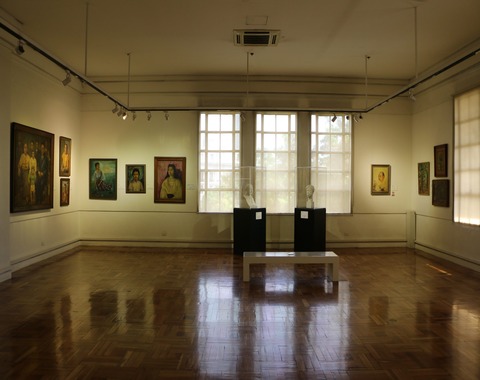
Gallery V
Dr. Jose Rizal Hall
This exhibition honors Dr. José Rizal (1861-1896), known widely for his patriotism and acclaimed novels Noli Me Tangere and El Filibusterismo. Displayed in this gallery are some of his works which show that aside from being a prominent doctor and writer, he was also a skilled artist. Also included here are several portrait busts and paintings of Rizal by eminent Filipino artists from the early to mid-20th century.
READ MORE
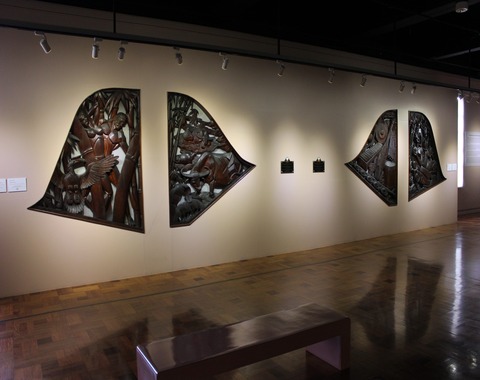
Vicente S. Manansala
Philam Life Hall
This hall shows seven large paintings by National Artist Vicente S. Manansala (1910-1981) commissioned in the 1960s by the Philippine-American General Life Insurance Company (Philam Life) for its building at United Nations Avenue, Ermita, Manila. Also featured here are rural-themed wood reliefs by renowned sculptor, Jose P. Alcantara (1911-2005), which previously adorned the Philam Life Theater.
READ MORE
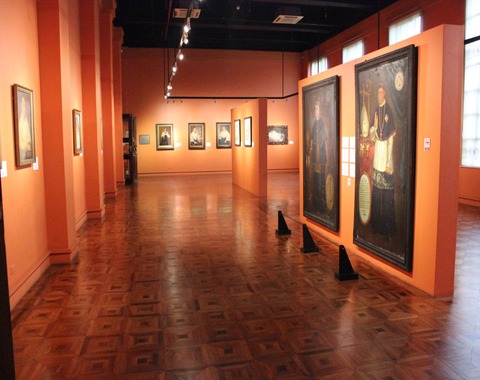
Gallery IV
Fundación Santiago Hall
This gallery features paintings that convey self-representation, aspiration, and likeness, among other desires and projections that characterize 19th century portraits found in the Philippines.
READ MORE
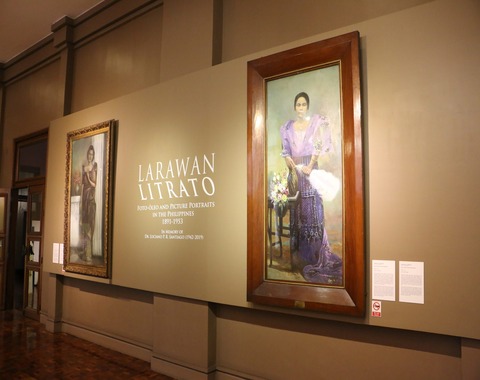
Gallery VII
Special Exhibition Hall
Foto-óleo is an art form popular during the mid-19th to mid-20th centuries executed by hand-painting directly on black and white photographs to make them more life-like and visually pleasing. In the Philippines, collections of this art form suggest that foto-óleo was practiced in portraiture in the early 20th century. It was popular mainly among middle-class and prominent Filipino families as it signified their wealth and social status.
READ MORE
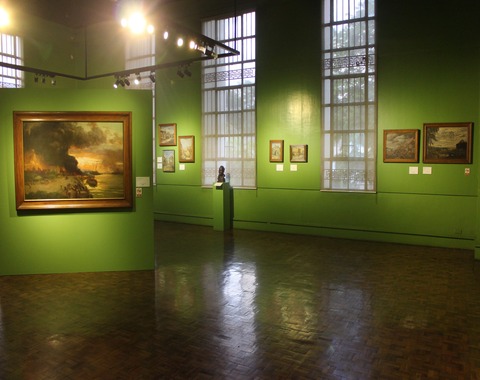
Gallery VIII
Silvina and Juan C. Laya Hall
With the outbreak of World War II, Filipino artists depicted scenes that expressed conflict and suffering during this era. Works in this gallery portray the Imperial Japanese Occupation from 1941-1945, the Liberation of the Philippines by American and Filipino forces, and the destruction of Manila.
READ MORE
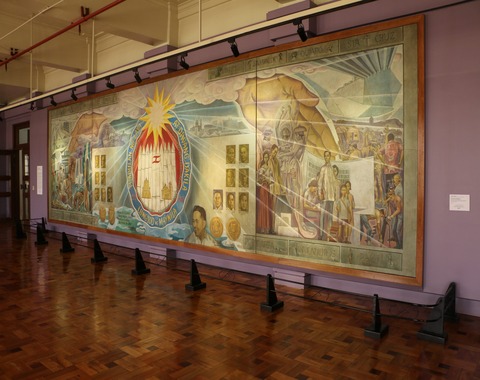
Gallery XIII
Vicente and Carmen Fabella Hall
This gallery features the fourth painting in the series that comprise the Filipino Struggles Through History. It includes works of National Artist Napoleon Abueva (1930-2018), including two large wood reliefs that he made with the assistance of Renato Rocha (1937-2001) and Jose Mendoza (b. 1941) portraying Rajah Sulayman, His Court, and the Palisades, Miguel Lopez de Legaspi, and the Founding of Manila.
READ MORE
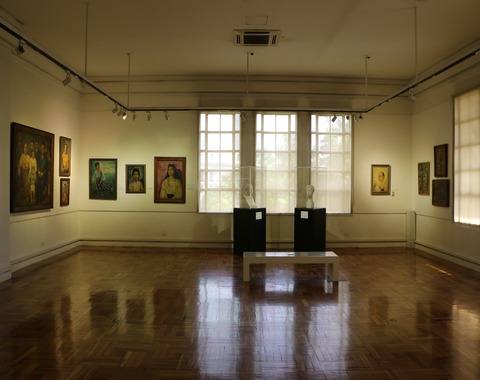
Gallery XIV
Pillars of Philippine Modernism
This gallery features modern Philippine art from the 1920s to the 1970s. Victorio C. Edades (1895-1985) spearheaded Modernism in the country. He was influenced deeply by his studies and exposure to the style in the United States. Works of Manuel Rodriguez, Sr. (1912-2017), Juvenal Sanso (b. 1929), and Galo Ocampo (1913-1985), as well as sculptures by Diosdado Lorenzo (1906-1984), are also featured here.
READ MORE
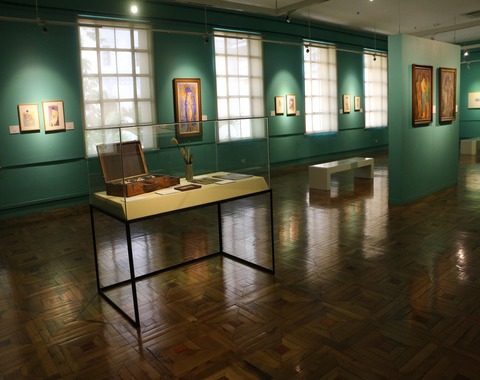
Gallery XV
E. Aguilar Cruz Hall
This hall is dedicated to the life and works of Emilio Aguilar Cruz (1915-1991), launched in celebration of his centennial year on September 23, 2015. The artist’s family donated the artwork featured in this exhibition. He is best known as a writer, diplomat, and cultural authority.
READ MORE
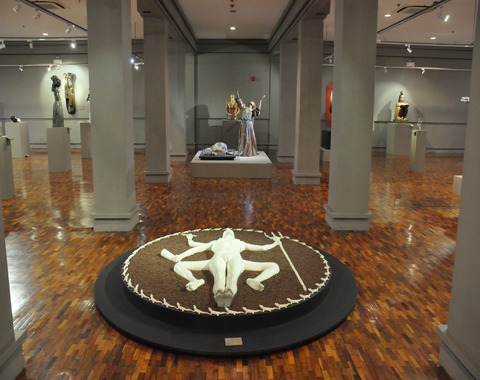
Gallery XXIX
Philippine Modern Sculpture Hall
This hall is dedicated to Philippine Modern Sculptures. Featured here are notable works of National Artists Abdulmari Asia Imao (1936-2014), Arturo Luz (1926-2021) and Jerry Elizalde Navarro (1924-1999) along with other artists like Lamberto Hechanova (1939-2014), Renato Rocha (1937-2001), Ramon Orlina (b. 1944), Agnes Arellano (b. 1949), Jullie Lluch (b. 1946), at Virginia Ty-Navarro (1924-1996).
READ MORE
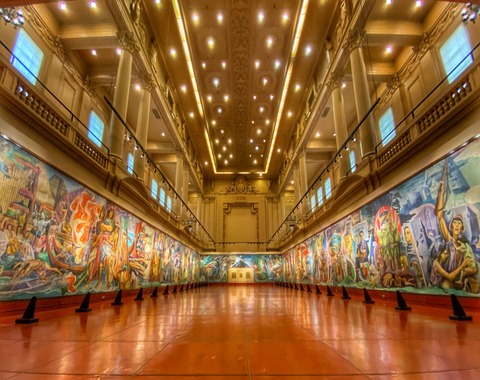
Carlos Francisco
Old Senate Session
This hall features the Filipino Struggles Through History, also known as History of Manila, the monumental series of paintings by National Artist Carlos “Botong” V. Francisco (1912-1969) commissioned in 1968 for the Manila City Hall by Mayor Antonio J. Villegas.